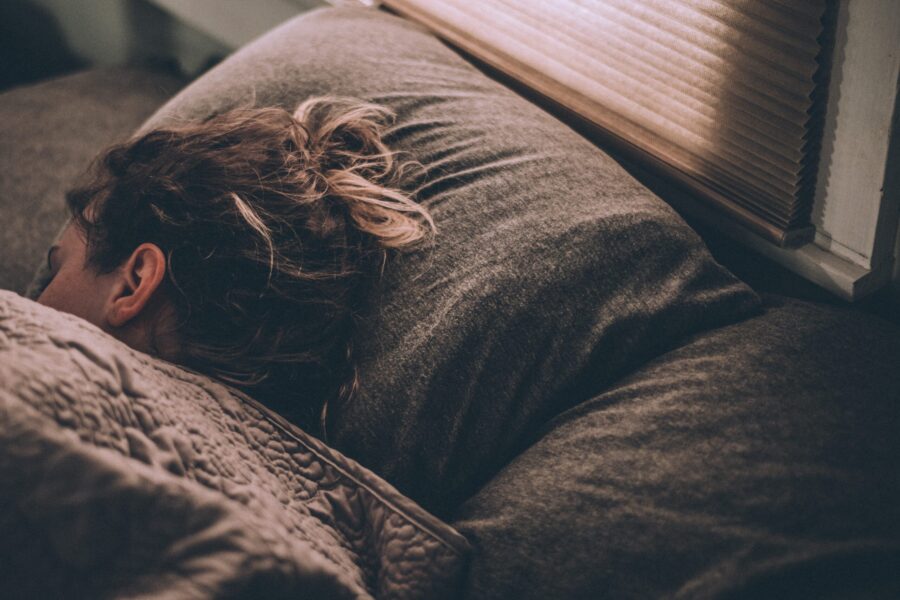Do You Take Your Phone to Bed with You? Don’t, Sleep Experts Warn
Do you take your phone to bed with you to fall asleep? If so, you’re in good company.
According to a 2011 poll from the National Sleep Foundation, roughly four in 10 Americans bring their cell phone into bed when trying to fall asleep, especially teens and young adults ages 13 to 29. Not only that, but six in 10 people reported using a desktop or laptop computer within one hour of bedtime.
Although many of us do it, it’s a decidedly bad idea. Why?
Sleep is absolutely critical to mental health and well-being. A Sleep Foundation article explains just how digital devices interfere with falling and staying asleep.
Studies have shown that engaging with these devices interferes with sleep by suppressing the production of melatonin, the hormone our bodies naturally release in the evening to help us wind down and feel sleepy. Instead, using our computers or phones at night leads to “neurophysiologic arousals that increase feelings of alertness.”
Why do electronics keep us up?
Our bodies are regulated by circadian rhythms –our biological clock – following a 24-hour sleep-wake cycle. At dawn, our bodies release cortisol, a hormone that helps us wake up and feel alert. Soon after the onset of darkness, the pineal gland in the brain releases melatonin, which helps us feel sleepy.
Back-lit electronic devices – like cell phones, computers, tablets, and readers – emit blue light, or short-wavelength enriched light, which has been shown to delay sleep. Not only that, the article explains, blue light “can also reduce the amount of time you spend in slow-wave and rapid-eye movement (REM) sleep, two stages of the sleep cycle that are vital for cognitive functioning.”
Children are particularly vulnerable to sleep problems arising from blue light exposure before bed. Multiple studies have shown that screen time before bed increases the time it takes to fall asleep. Less restful sleep also leads to exhaustion and lower cognitive functioning.
Even worse, blue light can cause retinal damage, leading to age-related macular degeneration.
What can we do?
- Decrease your screen time throughout the day as well as at night. Research shows that especially among teens, excessive screen use has a negative impact on sleep.
- Keep screens out of your bedroom. Watching TV has negative effects on sleep as well.
- Establish a relaxing, screen-free nighttime routine. Take a warm shower. Pick up a book instead.
- Keep bedroom lights dim. Even normal light can interfere with melatonin production.
- Use nighttime mode on electronics when available.
- Purchase some orange-tinted blue blocker glasses designed to shield your eyes from blue light.
To learn more about sleep and electronic devices, read the full article here.
Learn more about mitigating the negative effects of blue light from UC Davis Health.
Pacheco, Danielle. “How Electronics Affect Sleep.” Sleepfoundation.org, 15 Dec 2022, https://www.sleepfoundation.org/how-sleep-works/how-electronics-affect-sleep.
Photo by Gregory Pappas on Unsplash



